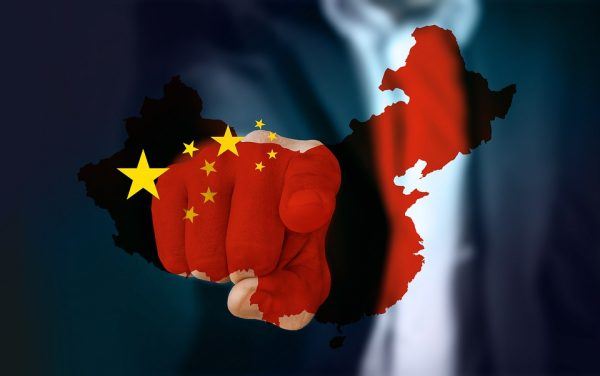In a fascinating exposé, Bloomberg recently laid out a detailed report on China’s most elaborate scheme to achieve technological supremacy over the West.
The program, dubbed the Thousand Talents Plan, is nothing less than a strategy to swipe as many human assets as possible in specific fields of study. These students will come from the US and other Western countries—the aim is to transplant them into Chinese institutions.
A Thousand Talents, A Thousand Cuts
Perusing the web pages of Thousand Talents, one can see why US intelligence organizations, such as the National Intelligence Council (NIC), have branded the strategy as a long-term threat to national security.
It is a fascinating program from many perspectives. For one, the venture is an extremely bold move on the part of the Chinese government—it has essentially brought the science and technology head hunting game, typically a contest between private corporations, to the level of national power competition.
One of the most intriguing things about Thousand Talents is just how explicit and open it is. The program’s site is fully accessible to the public, and offers contact information for candidates inquiring about eligibility.
Up and Running
There are several issues with the program that are worth highlighting from a national security perspective.
First off, this program is not all that new. It first got traction amongst Chinese policymakers in 2008 under the name of the “Recruitment Program of Global Experts.” The goal of the program was to bolster the ranks of “state-owned commercial and financial institutions” with capable personnel from the West. This means that Thousand Talents has had quite a bit of time to promote itself and gather recruits. The program’s site claims that by 2014, more than 4,180 high-level talents were accepted from overseas.
The Perks
Thousand Talents promises some great benefits to applicants willing to come and work in China. Upon acceptance, they are immediately given a one-time stipend of up to one million yuan (about $153,000) in addition to research subsidies as high as five million yuan. To take care of their long-term needs in China, participants are entitled to “medical care, social insurance including pensions, medical insurance, and work-related injury insurance.” Additionally, each participant is granted Chinese residency, along with their spouse and children. He or she is given a “residential apartment” for personal use.

Who are they Looking for?
Thousand Talents has quite a diverse range of slots they’re trying to fill. The program has a total of six categories, ranging from hard science experts to business management professionals.
One section seeks candidates holding a Ph.D. in technical subjects from “prestigious overseas universities.”
The program for “entrepreneurship” is for recruiting those with “experience in starting a business overseas or serving as middle or senior-level managers in renowned international enterprises.”
The Innovative Talents Recruitment Program looks to fill positions in public infrastructure and other areas of “industrial development.”
Another facet of Thousand Talents doesn’t even deal with technical fields at all, but rather in filling the void of “urgently needed professionals” in “liberal arts” and “social sciences,” including political science and psychology. The program is also on the prowl for legal experts who specialized in “intellectual property,” “environment and resources protection,” and “international law.”
The most ambiguous, but also the most telling section of Thousand Talents, is its “Program for Topnotch Talents and Teams.” This category is geared toward “winners of important international awards, such as the Nobel Prize, the A.M. Turing Award” and prominent academics from “developed countries such as the United States, the U.K.”

The Great Exploit
It is important to appreciate that Thousand Talents is the culmination of a decades-old Chinese strategy. Like many countries, PRC has long been obsessed with advancing technologically. But China has for long had a unique way of going about this.
The history of Chinese espionage operations against the US is packed with the most scandalous episodes in the annals of intelligence. From the 33 years long career of Larry Wu-Tai Chin—widely believed to be the spy that inflicted the most damage to US interests, surpassing both Aldrich Ames and Robert Hanssen—to the Hollywood-like saga of Katrina Leung, aka the Parlor Maid. The PRC’s spying contains both diverse and creative methods. However, the most important goal of China’s operations against America has been targeting the nation’s scientific expertise for exploitation.
Today, it is a staple of intelligence studies that China presents the greatest threat to the United States from the perspective of “trade secret breach” and business espionage.
The case that uncovered this reality was on its own merits, relatively inconsequential. But it served as a hard wake-up call to the intelligence community about the risk of intellectual property theft by the Chinese. The FBI investigation code-named “Tiger Trap” was a series of operations targeting Gwo-Bao Min, a Taiwan-born scientist who worked for the prestigious federal research center, Lawrence Livermore Laboratories. Born in 1939, Min graduated from National Taiwan University in Taipei in 1962 with an engineering degree. He came to the United States shortly afterward to pursue a Masters in engineering from West Virginia University. He landed himself a job at Livermore in 1975, working in the center’s nuclear research department. After a US intelligence asset in China reported Min as a possible security risk, the FBI began looking into the Taiwanese scientist. After two years of investigations, Min was eventually caught at an airport on his way to China with detailed reports on nuclear weapons systems. Prosecutors, however, felt that there wasn’t strong enough evidence to convict him. Although Min was forced to resign from Lawrence Livermore and would remain on the FBI’s radar for quite a while, the case pretty much ended there. Over the past thirty years, episode after episode has proven that Tiger Trap had merely scratched the surface of one of China’s biggest intelligence-gathering initiatives.
Of course, the advent of the digital age gave a whole new dimension to China’s information theft efforts. Even a brief overview of the relatively recent incidents in the cybersphere show that PRC means business. Both private and government institutions have all become fair game. Back in 2010, Google reported that Chinese hackers had attacked their systems with the objective of stealing information on the Single Sign-On program, at the time considered the cutting edge of digital authentication. In 2014, a US grand jury indicted five Chinese military hackers for computer hacking, economic espionage, and other offenses directed at six American victims in the U.S. nuclear power, metals and solar products industries. The charges filed by the Obama Justice Department (DoJ) represented “the first ever charges against a state actor” for economic espionage, according to then-US Attorney General Eric Holder.
One of the more important revelations of Edward Snowden leaks in 2015 was the report of a Chinese breach of Pentagon systems to steal blueprints of the F-35 stealth fighter. The hack allegedly took place between 2009 and 2013. In light of this, it should not be a surprise that China’s own J-31 fighter, first unveiled five years ago, bears striking design similarities to the F-35. In 2017, another case was filed against an additional three hackers connected to a private Chinese firm. According to a DoJ report, the three defendants “conspired to hack into private corporate entities in order to maintain unauthorized access to, and steal sensitive internal documents and communications from, those entities’ computers.” And finally, just last month, reports revealed that Chinese government hackers compromised the computers of a US Navy contractor and stole a large amount of highly sensitive data on undersea warfare. The information copied by the attackers contained, amongst other things, plans for a supersonic anti-ship missile for use on US submarines. According to Reuters, the attack on the Naval Undersea Warfare Center, a military entity based in Newport, Rhode Island, resulted in the loss of 614 gigabytes of data.
Indeed, exploiting the scientific achievements of the West in general, and America in particular, is a central feature of Chinese strategy. It has been for a very long time. Thousand Talents is the latest evolution of this doctrine. While talent programs may be less illicit than hacking into an adversary’s computer system, it is more encompassing than any other strategy implemented by China over the decades. Instead of stealing specific data, through Thousand Talents and other similar programs, China seeks to grab ahold of the source of Western scientific progress, namely, its human capital. The Thousand Talents mission statement could not have been more explicit: “Our aim is to gather the global wisdom and create the China great exploit.”

There is good news and bad news about PRC’s latest exploit scheme.
The bad news is that if it is successful, it could deliver a serious blow to brain-powering the most important areas of both private and government development, while simultaneously enriching a key US adversary.
The good news? In many ways, Thousand Talents is easier to combat than other methods China used in the past. The US can compete in the international job market openly against PRC’s efforts to procure talent. Washington simply needs to make better offers than Beijing. Many technicians, scientists, and other academics may be attracted to Chinese talent programs because of their premade perks packages and generous monetary benefits. But if similar programs were available in America, it is unlikely that candidates would choose the Oriental option over a similar program in the United States.
America must maintain a global perspective. We often take for granted the superiority of the American system. And in many instances, we are right. It’s not happened by chance that such a high demand exists amongst the world’s population to live and work in the United States. However, as the global playing field becomes more and more leveled out, the advantages of this country become less clear. Other nations appear capable of competing against the American standard. This means we need to keep our eye on the ball. Paying attention to the “market” strategies of our adversaries, and responding with our own versions, will help ensure America maintains its edge in technological and scientific development for the long-term.
















